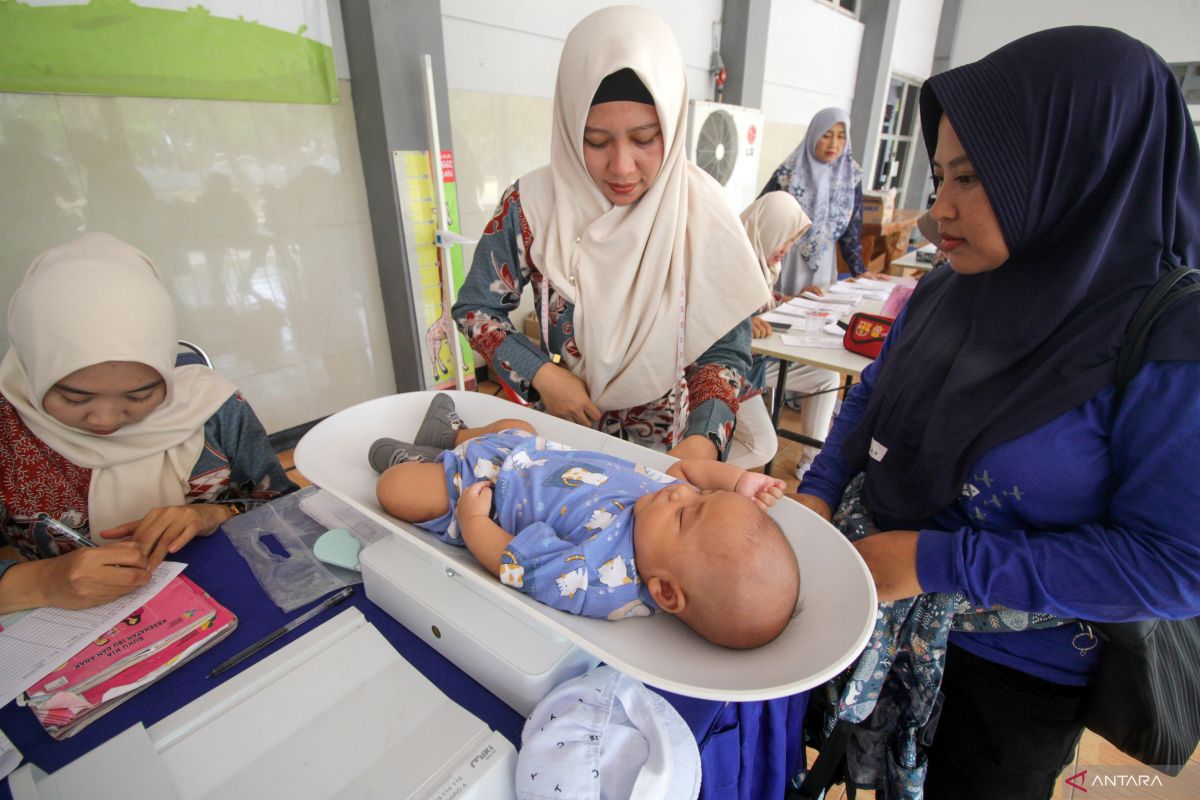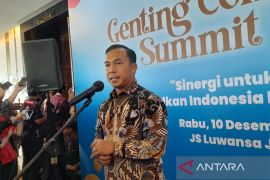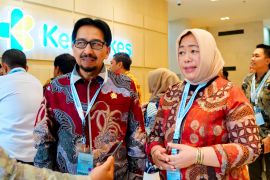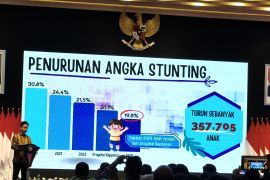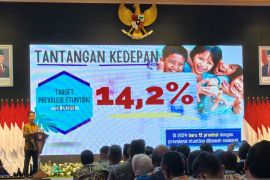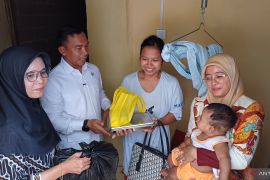Data from the 2023 Indonesian Health Survey (SKI) recorded stunting prevalence in toddlers at 21.5 percent; underweight, 15.9 percent; wasting, 8.5 percent; and obesity, 4.2 percent. This condition is experienced not only by toddlers but also by school-aged children.
In fact, nutrition is one of the keys to achieving healthy, intelligent, productive, and competitive human resources (HR) of quality. One of the obstacles faced is the community's unfulfilled food and nutrition needs.
A researcher at the Center for Public Health and Nutrition Research of the Health Research Organization, National Research and Innovation Agency (BRIN), Dr Yekti Widodo, noted that fulfilling the community's food and nutrition needs will have a major impact on HR development.
The fulfillment of food and nutrition needs is also a solid foundation for achieving better health, education, productivity, and welfare in society. However, access to nutritious and safe food is still unequal in Indonesia.
This condition is caused by several factors, such as economic aspects, knowledge, availability and affordability, and individual preferences.
People tend to consume less diverse and nutritionally balanced food. The results of the 2023 SKI showed less consumption of vegetables in 86.7 percent of people aged five years and above. In fact, 11.8 percent have never consumed vegetables.
Apart from vegetable consumption, animal protein intake is also still lacking in Indonesia.
The 2022 National Socio-Economic Survey (Susenas) showed that the Indonesian people's protein consumption per capita was already above the national standard, which was 62.21 grams.
However, an improvement is still needed in animal protein consumption, especially from fish, shrimp, squid, and shellfish, which is still at 9.58 grams; meat, 4.79 grams; and eggs and milk, 3.37 grams.
Consumption of animal protein plays a major role in preventing nutritional problems in the country. Furthermore, nutritional status is important in determining the risk factors for illness and death in children.
For instance, in cases of stunting, the short-term effect is suboptimal brain development and disrupted cognitive development, thereby resulting in non-optimal learning ability in children.
In the long run, experts believe that children with stunting are prone to non-communicable diseases, have a high risk of degenerative diseases, and find it difficult to compete at jobs, leading to low productivity.
Public Health Nutritionist at the University of Indonesia Professor Sandra Fikawati explained that animal protein intake is important for the human body, which requires at least 20 types of essential amino acids.
Nine of the 20 types of essential amino acids must be obtained from food. Animal protein provides more complete essential amino acids than other forms of protein.
The results of a study by the Action Against Stunting Hub (AASH) Indonesia showed that one in three babies under the age of two had not received proper animal protein. This condition is also experienced by toddlers and school-age children.
In the face of several influencing factors, animal protein intake in children is very important. Hence, children should have access to consume animal protein.
Collaboration
Apart from the government's programs, efforts to reduce malnutrition cases in children can be made through collaboration with several parties, including the JAPFA for Kids (JFK) program targeting school-age children in several regions in the country.
The prevalence of malnutrition in elementary school children in 2023 was recorded at 18 percent of children with stunting and prevalence of wasting at 12 percent.
This means one in five school-age children experiences growth disorders due to malnutrition, which can impact learning ability, long-term health, and productivity in the future.
The lack of nutritional intervention programs for school-age children has been considered in determining the program's target.
The Corporate Affairs Director of JAPFA, Rachmat Indrajaya, stated that the JFK aims to reduce malnutrition prevalence in students and encourage healthy living habits in schools.
JAPFA is a multinational agriculture and food corporation in Indonesia.
One of the JFK program locations is Mempawah District, West Kalimantan. In this region, the program provides benefits to the community around the business unit. The program had a direct impact on reducing malnutrition in students by 78 percent during the six months of the program.
In the first phase, or the initial three months, one facilitator is designated for each region and provides access to animal protein to improve student nutrition. This way, schools are expected to run the program and strengthen the system.
In the second phase, or the subsequent three months, free access to animal protein is provided but schools are urged to implement the program independently. Facilitators continue to carry out remote monitoring through a system by teachers.
Furthermore, the program continues with the provision of awards to ensure it runs independently without the presence of JAPFA. Parents are involved as key figures in overcoming malnutrition and implementing a healthy lifestyle.
Through multi-party collaboration, efforts to overcome nutritional problems in the nation's next generation can be achieved. Eating patterns prioritizing nutritional aspects also need to become a habit, starting from home.
After all, children's nutritional status greatly determines the nation's competitiveness in the future to support the government in achieving the vision of 2045 Golden Indonesia.
Related news: Stunting down 9.63% in 5 years: Minister Effendy
Related news: Indonesia expands free nutritious meal program to combat stunting
Translator: Indriani, Resinta Sulistiyandari
Editor: Tia Mutiasari
Copyright © ANTARA 2024
